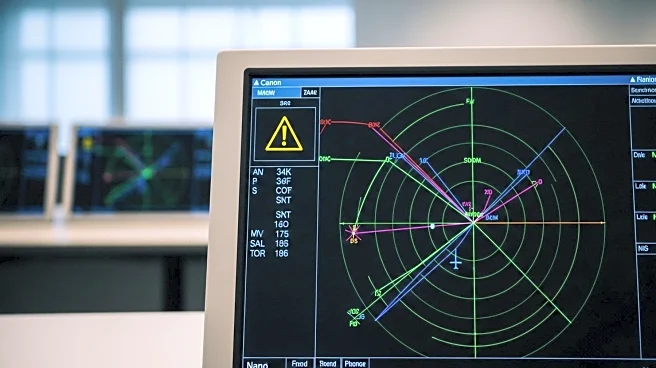What's Happening?
Transportation Secretary Sean Duffy has issued a warning to air traffic controllers who are calling in sick during the ongoing federal government shutdown. Despite a critical shortage of air traffic controllers, Duffy emphasized that those who fail to report to work without a valid reason could face termination. The shortage has led to significant delays at airports across the United States, particularly affecting smaller airports in Burbank, California, and Nashville, Tennessee, as well as major hubs like Newark, Chicago, Denver, and Dallas-Fort Worth. The National Association of Air Traffic Controllers has urged its members to continue working, highlighting the legal implications and potential career risks of coordinated work absences.
Why It's Important?
The government shutdown is exacerbating existing challenges within the air traffic control sector, which is already facing a staffing crisis. The potential firings of air traffic controllers could further strain the system, leading to more widespread delays and disruptions in air travel. This situation underscores the broader impact of the shutdown on federal employees, who are working without pay and facing financial uncertainty. The pressure on Congress to resolve the shutdown may increase as travel disruptions affect more Americans, potentially influencing public opinion and political negotiations.
What's Next?
As the shutdown continues, the situation for air traffic controllers and other federal employees remains precarious. The possibility of firings could lead to increased tensions between the government and unions representing federal workers. Additionally, the ongoing travel disruptions may prompt airlines and airport authorities to lobby for a resolution to the shutdown. The government may need to expedite hiring and training processes to address the shortage of air traffic controllers in the long term.












